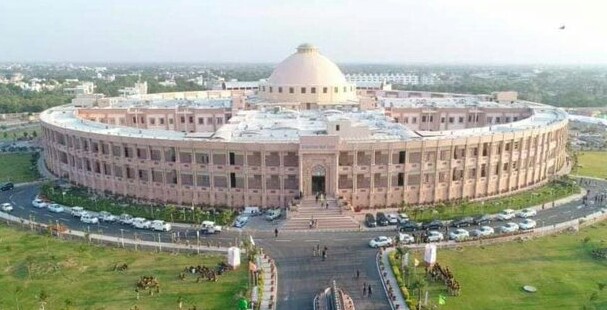On Tuesday, the Rajasthan High Court issued a directive to both the Union of India and the Rajasthan government to compensate a woman with ₹4 lakh. This compensation pertains to an incident in 2016 where the woman was compelled to deliver two children, who unfortunately passed away later, on a roadside. The case is referenced as Phoolmati vs State Medical And Healthors.
Justice Anoop Kumar Dhand expressed that the loss of the two children was a result of the “reckless and negligent behavior” of the staff stationed at the Community Health Centre (CHC) in Khedli. This incident, according to the Justice, highlights a “death of humanity.”
Furthermore, the Court mandated the initiation of a departmental inquiry against the responsible individuals in accordance with the law. It criticized the lack of action in this matter.
Phoolmati (the petitioner) encountered refusal of treatment on April 7, 2016, due to the absence of the Mamta card, which was designed to aid pregnant women. Consequently, she gave birth to her children on the roadside.
Tragically, one child passed away while being transported to the hospital, while the other succumbed due to lack of medical care.
In 2016, she approached the High Court seeking accountability from the negligent health staff and the efficient execution of schemes aimed at supporting pregnant women.
The Court at the outset noted that cluster of schemes National Maternity Benefit Scheme (NMBS), National Family Benefit Scheme (NFBS), National Rural Health Mission (NRHM), Janani Suraksha Yojna (JSY), Janani Shishu Suraksha Karyakaram (JSSK) have been framed by the Government of India to reduce infant and maternal mortality.
“In spite of having the aforementioned several beneficial Scheme for the welfare of pregnant females and infants, the respondents have miserably failed to discharge their duties in providing the benefits of these Schemes to the petitioner and her newly born infants,” it observed.
Regarding the implementation of the schemes, the Court remarked that the Government of India was evading its responsibility merely on the technicality that health falls under the jurisdiction of the states.
The Court emphasized that the right to health is a nationwide initiative initiated by the Central government, and the Union of India must bear the primary responsibility for ensuring good health.
“It is rather unfortunate that now the Union of India is treating the subject ‘Health’ as a public health issue and making it the concern of the State Governments. This is simply not permissible and appears to be a case of passing the buck,” Justice Dhand remarked.
While recognizing that the implementation of the schemes primarily falls under the purview of the State, the Court emphasized the crucial role of the Union’s collaboration with the State government for the effectiveness of such programs.
Within the framework of cooperative federalism, the Court asserted that the Union of India cannot limit its responsibility to merely formulating a scheme; it must also ensure its actualization and execution.
Additionally, the Court addressed the duty of medical professionals to provide assistance in preserving life.
In the present case, it found there was gross negligence and failure.
“Therefore, on account of denial to provide the minimum benefits of the aforementioned Schemes to the petitioner, the Union of India and the State Government would be jointly and severely liable to pay her compensation in the sum of ₹4 Lakhs within a period of three months,” ordered the Court.
The Court made it clear that the awarded amount will be placed in a fixed deposit for a duration of three years, with the interest earned being transferred to Phoolmati’s account every quarter.
The petitioner will have the option to withdraw the fixed deposit only after the three-year period has elapsed, the Court specified.
Furthermore, the Court ordered the payment of ₹25,000 to the petitioner within a timeframe of three months.
With regard to her prayer for effective implementation of the schemes, the Court directed the Union of India and Government of Rajasthan to address the shortcomings by constituting a Joint High Powered Committee.
The Court also passed the various directions including directions for increasing the cash amount given to the pregnant women before and after delivery.



